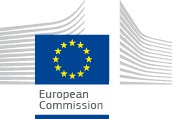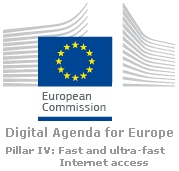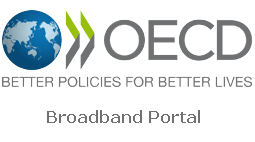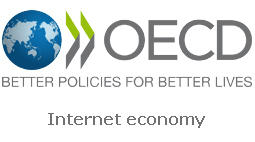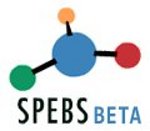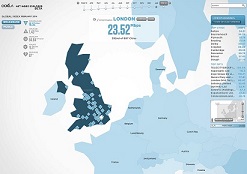We suggest
Actions-Initiatives for developing Broadband
BReATH - Broadband e-Services and Access for the Home
BReATH is a project that has been implemented in order to promote and support the transfer of technology
and of best practices used to develop broadband services in new member states of the E.U.,
the interference of various participants and the positive reinforcement of cross-border research cooperation.
BReATH was financed by E.U.'s 6th Framework Programme and it belongs to the technology sector of the Information Society.
This sector is designated to encourage the development of hardware and software technologies in Europe,
aiming to increase competitiveness of the European industry and help European citizens to profit from the advantages of new technologies.
The University of Eindhoven, Holland is the coordinator of the project, and the rest of the partners are:
the National Institute of Telecommunication (Poland), the Institute of Photonics and Electronics (Czechoslovakia),
the Laboratory for Open Systems and Networks (Slovenia), the Athens Information Technology (Greece), GTel (Great Britain),
EURESCOM (Germany). The programme started in June 2005 and was completed in December 2006.
A-BARD - Analysing Broadband Access for Rural Development
A-BARD (Analysing Broadband Access for Rural Development) is a coordinated action for broadening the Broadband access
in distant and rural regions, and it is part of the Scientific Support to Policies (SSP) of E.U.'s 6th framework.
A-BARD aims to determine the perception around issues and obstacles in Broadband Access and define -at the same time-
how Broadband could play the role of an external factor in changing rural economies.
BRAND
The Canadian government developed the «Broadband for Rural and Northern Development Pilot Programme" that aimed
in helping mainly rural regions that didn't have broadband access. The development of Broadband infrastructure
in those regions would be multiply beneficial in the fields of education, health and economy in general.
Networks that have been developed in those regions as part of this programme were financed by the state.
BROADWAN
The BROADWAN programme that started in December 2003 and finished in May 2006 had three main targets:
Enterprises, organizations, educational foundations, health committees, cultural services and municipal authorities are increasingly making the best of broadband services. Given that this programme is applied on a European level, it is beneficial for all citizens as it is eco-friendly. Additionally, broadband technology is aiding the European business sector and on the other hand, all technologies using radio spectrum give the opportunity to improve third world societies. Profitable wireless access systems give the ability to have broadband access in a reasonable time frame. While wireless applications will play an important rolein some areas and will be the only solution for broadband networks development in others, in any case, applications using radio spectrum will play an important role in competition development. BROADWAN offers a total solution for widespread hybrid broadband access networks not only for fixed-network users but for wireless-network users too. This will be achieved through many innovations, the new generation equipment, the automatic network programming and the executive software. All 25 partners of the project come from providers' sector, industrial, academic and there are also representatives from ten countries.
BREAD
The Bread co-ordination action aims at developing a multi-disciplinary approach for the realisation of the 'Broadband for all'
concept within Europe. The programme has eight partners that come from the academic field, research institutes and consultants
from Belgium, Britain, Denmark, France, Switzerland and Spain. The programme had 30 months duration, starting in January 2004.
The E.U. aimed through this action, not only to develop a simple strategy for promoting Broadband technologies, but search in
depth and take under consideration all financial, regulatory and technological factors. The BREAD action aims to study the effect
of all this factors and to develop new strategies and good practices for developing Broadband infrastructure. At the same time,
the aim within BREAD, is to bring together all bodies that are taking part at the Broadband domain. Furthermore, there is an
extensive study concerning multiple technologies and the continuously evolving situation. Within the framework of this action,
techno-economic societal and regulatory aspects of the plan "Broadband for all" will be studied. There's an effort to determine
the effect of the regulatory framework of the E.U. regarding the successful application of the new broadband communication services.
This work includes all successful case studies of broadband infrastructure and network implementation, the role of state commissions
in their development and finally business plans designed for the viability of those networks. This way, the "European Research Area"
will be supported by interacting between national and European initiatives and programmes.
NOBEL - Next Generation Optical Networks for Broadband European Leadership
The main objective of NOBEL project is to carry out analysis, feasibility studies and experimental validations of innovative network
solutions and technologies for core and metropolitan networks that support broadband services. The programme started in February 2004
and lasted for two years. The European Commission financially supported NOBEL with 13,7 million Euros. The NOBEL consortium consists of
a great number of European bodies from telecommunications, networks and research institutions that play a leading role in the market setup.
NOBEL contributes to the objectives set by the VIth FP IST "Broadband for All" supporting the development of competitiveness and optical
networks. Specifically, the main objectives of the programme are: deployment of broadband network architectures and applications developed
for mass market, European research support and development of cost-effective optical technologies, empowerment of E.U.'s position in
standardising organisations and fora so as to create a perspective and a vision for a common European network with advanced and innovative
broadband applications, accessible to all.
OBAN
OBAN is an EU project which introduces an innovative approach to an open broadband access network built upon existing privately
owned WLANs and fixed access lines (e.g. ADSL/VDSL, optical fibre or cable modems). Providing 25 Mb/s storage capacity for core
and wireless users, OBAN initiative is an alternative solution for 3G and 4G mobile networks' implementation. OBAN has the
ability to embed P2P network communication and therefore, new market areas will open for network and service providers,
new and improved services will be provided to customers. The OBAN programme has 14 participants coming from the academic,
research, industrial and telecommunications' field. The programme has been implemented within the EU Framework Programme
6 of the European Committee during the period 2004-2006.
SEEDA Satellite Programme
South East England Development Agency - SEEDA is promoting a programme of satellite broadband access at a low cost,
mainly in areas where ADSL technology is not available, in order to facilitate access to broadband services. The programme
is mainly aimed at rural areas and its targets are:
- To reduce the basic fee of connection and of satellite broadband network installation.
- To help rural regions profit from the benefits of broadband infrastructure.
- To utilize programme's results for the promoting Broadband in Southeast Britain.




